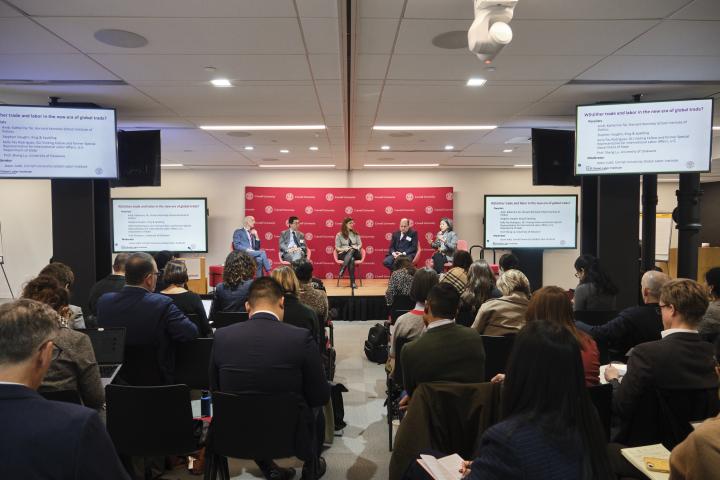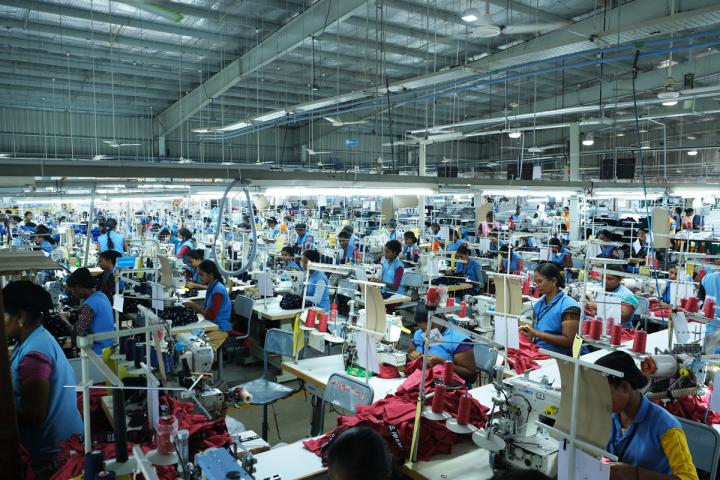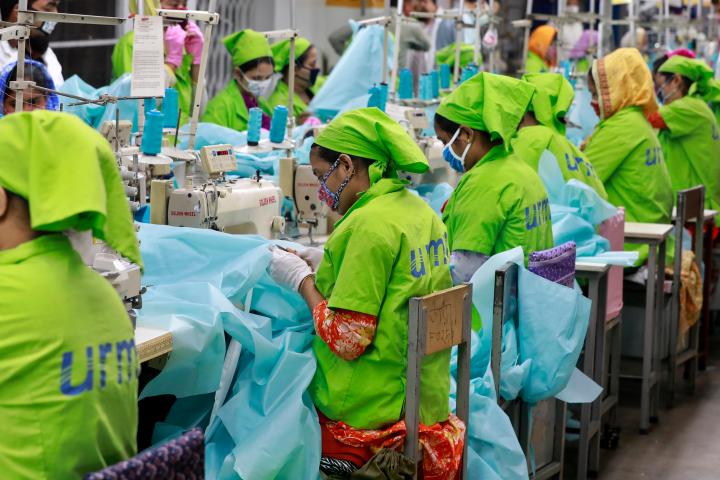
Brussels CSDDD Event Readout
Member of European Parliament and rapporteur for new EU corporate sustainability due diligence directive (CSDDD) Lara Wolters said today, “This is exactly what we need to be putting this into practice,” describing Cornell GLI’s Labor Outcome Metrics.
At Wednesday’s event focused on CSDDD implementation, Wolters said “I also immediately see this [outcomes reporting tool] as a response to those critics who now say that due diligence would be too burdensome… If the buzzword of today is competitiveness, then my answer would be this is part and parcel of that competitiveness.”
Zsofia Kerecsen of the European Commission Department of Justice and Consumers said, “This directive [CSDDD] is having a so-called Brussels effect. So there are more and more third countries which are also planning to adopt either mandatory due diligence laws [and ILO conventions].”
Those comments were made as part of the Press Club Brussels event “Corporate Sustainability and Accountability: How is it working for labor rights?” organized by Cornell University’s Global Labor Institute, the European Center for Constitutional and Human Rights, and Human Rights Watch. The event explored the intersection of corporate sustainability, the implementation of CSDDD, reporting requirements, and labor rights.
Professor Sarosh Kuruvilla presented Cornell GLI’s Labor Outcome Metrics which aim to help guide regulators and lead firms through this new era of due diligence and reporting requirements, with a focus on comparability for workers rights and environmental impact data.
Cisco’s Diane Mievis echoed the importance of these metrics. “I think we are fully supportive of that… We really appreciate the focus there on the impact on workers and on measurable progress… We also appreciate really the efforts to standardize.”
From ECCHR, Ben Vanpeperstraete described how these new due diligence requirements and these metrics provide a more even surface for everyone to work off of. “We've seen a couple of decades of sector initiatives, multi-stakeholder initiatives,” Vanpeperstraete said, “And a lot of energy was also placed into what should be in the code of conduct, what should be the MSI, what should be the consequences and now those discussions are basically becoming less relevant because, well, everybody needs to abide by the same rules. And so, you can shift that focus of cooperation to actually getting things done.”
Samira Rafaela, moderating the panel and a visiting fellow at the Global Labor Institute, said, "We want companies to go beyond compliance. It should not stop with ticking the box at the end. We want companies to make a shift."
HRW’s Hélène de Rengervé added, “What I heard also is that comparable data will generate tension. But it will also generate incentive, best practices, innovation, and it will facilitate the improvement of the efficiency of everyone.
You can watch a recording of this event by clicking on this link. Cornell GLI's report "Measuring Supply Chain Due Diligence: Labor Outcomes Metrics" available at this link.



